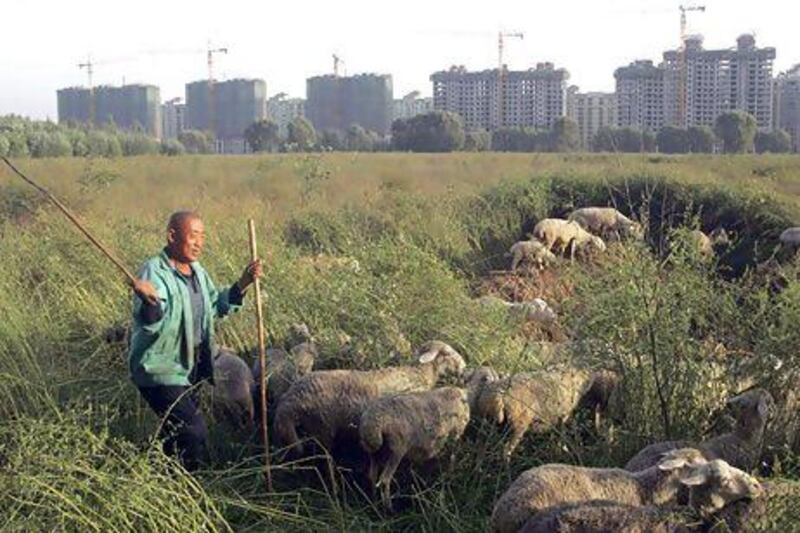People power seems to finally be having an effect in the world's second-biggest economy.
China's decade-long property boom has been built on a nationwide land grab that has seen millions of farmers kicked off their land with little or no compensation. Despite their protestations, leaders have traditionally turned a deaf ear. Local governments are the main beneficiaries. Last year, they racked up a cool 1 trillion yuan(Dh591.37bn) in net land sales - equal to about 10 per cent of total revenue.
Property developers also benefit from an abundant supply and low prices for land, driving breakneck profit growth. China Overseas Land & Investment, one of China's largest developers by revenue, boasted a net margin of 30.4 per cent last year and others are not far behind.
But the ground is shifting. China's State Council has approved a change in land laws. Details are scanty and the amendment has to be approved by the National People's Congress in March. But the direction of change is toward raising compensation closer to the market value of the land.
The main winners are China's 650 million farmers. Since the late 1990s, 43.1 per cent of villages had experienced land grabs, with compensation a fraction of market values, according to rural policy expert Landesa.
The rule change could also help China's economy achieve a better balance. Artificially cheap land has meant supernormal profits for the construction industry, which tilted China's economy too far toward investment as a driver of growth. Higher compensation for farmers could boost consumption and reduce the incentive to pour more concrete.
Local governments, though, will have to find a new source of revenue to replace land sales. Some 2.5tn yuan they borrowed to pay for stimulus projects in 2009 was backed by the promise of land sales. A nationwide rollout of the property tax - currently piloted in Shanghai and Chongqing - is one possibility to help to plug the gap.
Implementation of the new law could be tough. Farmers have no voice in the policy process and are often only dimly aware of their legal rights.
* Dow Jones





